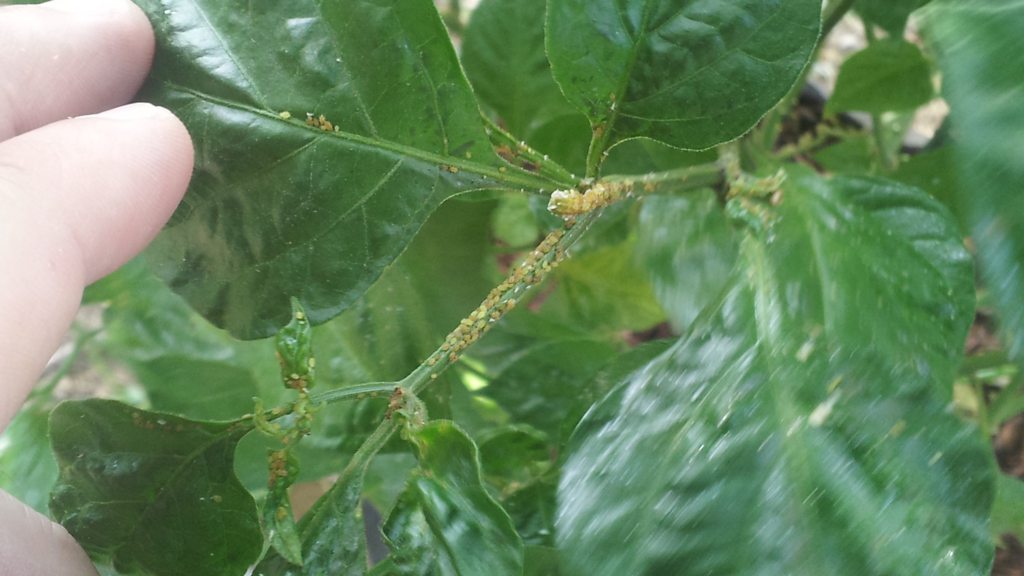Topsmoke said:
Hmm, i wonder why you had to resort to name calling, you must not have felt your argument had enough weight. Neither do i. and please oh please show me the research from an independent lab that empirically proves your claim.
http://grist.org/food/miracle-grow-indian-farmers-smash-crop-yield-records-without-gmos/
Its really interesting how angry and desperate pro-chem gardeners get trying to convince you they're right. You trying to convince me or yourself? cause if its me dont bother. peace out.
so i guess we are done arguing about glyphosate.
im under no illusions that i can convince people of your ilk. im meerly correcting bullshit for the benefit of others,ad hominem not withstanding.
so you are shifting the burden of proof onto me, philosophically speaking this position is hilarious since it is you who is standing upon a preposterous claim not me (refutation of all peer reviwed literature and general consensus etc.)
i will include some links. however im not expecting your to accept them, perhaps others will though.
http://news.berkeley.edu/2014/12/09/organic-conventional-farming-yield-gap/
Earlier studies have estimated the organic versus conventional yield gap at around 25% (about the same magnitude as the “antioxidant gap” that favors organic, see our July, 2014 meta-analysis of the nutritional differences between organic and conventional food). But in this new study on yields, across all comparisons, harvested organic yields were 19% lower than conventional yields, with the largest and most consistent gap in nitrogen-dependent cereals. But when cereals are grown in rotations, the yield gap falls by one-half or more, to below 10%. And among leguminous crops, the gap largely disappears, no doubt mostly because they affix much of their own nitrogen.
https://www.geneticliteracyproject.org/2015/10/11/usda-data-370-crops-organic-farming-lower-yields/
The reasons for the gap vary with crop and geography. In some cases the issue is the ability to meet periods of peak nutrient demand using only organic sources. The issue can be competition from weeds because herbicides are generally lacking for organic. In some cases its reflects higher yield loss to diseases and insects.
Although organic farmers definitely use pesticides, the restriction to
natural options can leave crops vulnerable to damage. I’ve posted a much more detailed summary of this information on
SCRIBD with the data at the state level.
regardless, GMO crops are not jsut about yield. in fact most of the gm corn cultivars are not that different than most of the hybrid cultivars available without gmo traits.
"organic" crops can easily out yield a similar gmo crop. it just depends on the intensity of the cultivation. the question you SHOULD be asking is does organic out yield conventional given the same imputs? the answer to that is sometimes, but not usually.
organic farms rely on crop rotations for nutrient demanding food crops far more than conventional farmers... most often the non organic growers will out yield a given organic farm simply because they can plant out more often than the organic farmer. synthetic nitrogen, water soluble phosphate, calcium are huge too, but are used less than you might think in huge commercial scales.
its all about saving money.
given that the biggest capital inputs are labor. you save the labor spent in spraying chemical pesticides, as in the case of BT trats, and you save labor and cost in tillage, as is the case when one has to till under weeds prior to planting.
the actual savings from lost yield in GMO verses organic is reletivly small... i think its like 20%. i thought it would be higher.
lowering cost just also happens to benifit the environment as well, as less spraying and tilling as i said above is required to manage weeds and pests.
its quite simple. if these traits were not worth the money. no farmer worth his salt would be paying extra for them. do you think farmers are stupid? their profit margin is like 3% on average if you include loan interest(vaguely recall).
ive said it a billion times... ive no problem with people growing 100% organic and what ever else, i just cant stand people trying to justify it with bullshit.
consider yourself lucky that there are people like myself, with copious time to waste... because most organic evangelists have ZERO dissenting information views with which to temper their nonsense world view.




